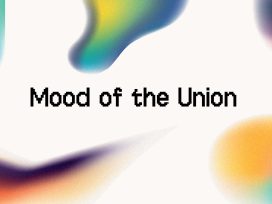Post-revolutionary Ukrainian society displays a unique mix of hope, enthusiasm, social creativity, collective trauma of war, radicalism and disillusionment. With the Maidan becoming history, the focal point ‘Ukraine in European Dialogue’ explores the new challenges facing the young democracy, its place in Europe, and the lessons it might offer for the future of the European project.
This focal point stems from the project ‘Ukraine in European Dialogue’ at the Institute for Human Sciences (IWM) in Vienna. The focal point is edited by Mariia Shynkarenko at the IWM. From 2018 to 2024, it was edited by Katherine Younger, and from 2016 to 2018 by Tatiana Zhurzhenko. Further texts have been contributed by journals in the Eurozine network.

In collaboration with
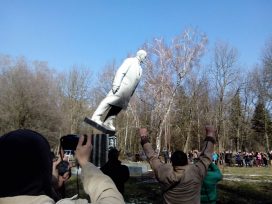
The making and unmaking of revolutions
What 1917 means for Ukraine, in light of the Maidan
This year marks 100 years since the momentous revolutions in Russia in 1917. The Russian government’s stance on the anniversary is deeply ambivalent, but 2017 offers Ukraine a chance to explore its own centenary of (short-lived) independence, as well as other parts of its national story, as Tatiana Zhurzhenko explains.

Snapshots of the war in Donbas
How the conflict in Ukraine affects the lives of those on the front
Paweł Pieniążek has covered the war in eastern Ukraine from all sides since it broke out in spring 2014. He was one of the first journalists on the scene of the MH17 airliner disaster. Here, translated into English for the first time from his book ‘The War that Changed Us’, is some of his reportage from the front line.

In a deeply personal reflection on identity, emigration and dispossession, writer Mykola Riabchuk surveys the recent history of his native Ukraine. He also describes the work of Vladimir Rafeenko, published in Eurozine for the first time in English on 21 August 2017.

Eurozine is pleased to publish a new literary voice from Ukraine, Vladimir Rafeenko, who appears here in English for the first time with a chilling short story about the conflict in Donbas. Translated from the Russian by historian Marci Shore.
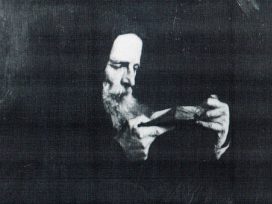
An example of decency
What the life of the Sheptytsky brothers means for contemporary Ukraine
Andrei and Klymentiy Sheptytsky, the Ukrainian Greek Catholic clerics who resisted both Nazi and Soviet oppression, have played an important role in shaping Ukrainian political identity. Polish intellectual and diplomat Adam Daniel Rotfeld was one of the many children of Jewish descent sheltered in the Sheptytskys’ monastery during WWII. Here, he re-evaluates the biographies of the two brothers.
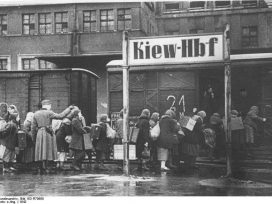
Don’t fall for the official Russian line on WWII, historian Timothy Snyder warns German MPs in a speech at the Bundestag. In the debate over Germany’s historical responsibility for its wartime actions in Ukraine, ‘Germany cannot afford to get major issues of its history wrong.’
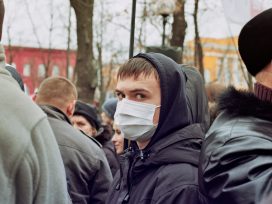
Defining censorship during a conflict
Is Ukraine right to block media from Russia?
Western commentators have lambasted Ukraine’s decision to ban Russian media, TV and film. But Mykola Riabchuk argues that attacking the move as censorship ignores its context: namely, Russia’s ongoing war against Ukraine.
Hippies are well known as a phenomenon of the West. But this counterculture, which inspired an entire generation, took root in an unlikely place – the Soviet Union of the 1970s.
The arithmetic of otherness
‘Donbas’ in Ukrainian intellectual discourse
Western Ukrainian intellectuals’ tendency to blame the Donbas for the war is based on a longstanding orientalization of the ‘Soviet’ Other. Reminiscences about erstwhile cultural diversity sit awkwardly alongside hostility to the East.
By banning the Russian contestant from performing at the Eurovision song contest in Kiev in May, Ukraine has damaged its international reputation – which is precisely what Russia intended. While an apolitical response would have been impossible, cleverer options were available.
Something unbelievable is happening in Belarus: people, especially in the provinces, are protesting, despite their fear of political repressions. Meanwhile, in the urban centres, a pop-cultural movement has begun seeking a new Belarusian identity. Against the background of economic crisis and tensions with Russia, the regime is being forced to rethink its neo-Soviet cultural policy.
It is life itself that forces change
An interview with Adam Daniel Rotfeld
The Polish intellectual and diplomat Adam Daniel Rotfeld played a key role in creating a new system of international security in the enlarged European Union. He contributed to settling the Transnistria conflict in the 1990s, helped resolve the political crisis in Ukraine during the Orange Revolution in 2004, and co-chaired the Polish-Russian Group on Difficult Matters. How does a professional crisis manager and architect of European security see the international conflict around Ukraine and the future of Ukrainian–Russian relations? Rotfeld spoke to Piotr Kubasiak at the Institute for Human Sciences (IWM, Vienna).
More of Europe
On the 'School of Kyiv Biennial' and the politics of excess
The “Kyiv Biennial 2015 – The School of Kyiv” was a profound consideration of Europe and Ukraine’s place in it. Developments since then, however, mean that Kiev is no longer the “city of Europe’s hope”, writes Kateryna Mishchenko.
You can, of course, ignore war. You can act like you don’t notice it, like it doesn’t affect you. You can stubbornly avoid looking in its direction. But then, ostentatiously ignoring it is also taking a stance, and not always a productive one.
A majority of almost two-thirds opposed the Association Agreement between the European Union and Ukraine in a referendum in the Netherlands on 6 April. As the public debate surrounding the referendum gained pace, the Ukrainian independent TV channel Hromadske became an important forum for associated discussion. Now that the results are in, Hromadske journalist Volodymyr Yermolenko assesses the implications for EU-Ukraine relations, and European politics in general.

